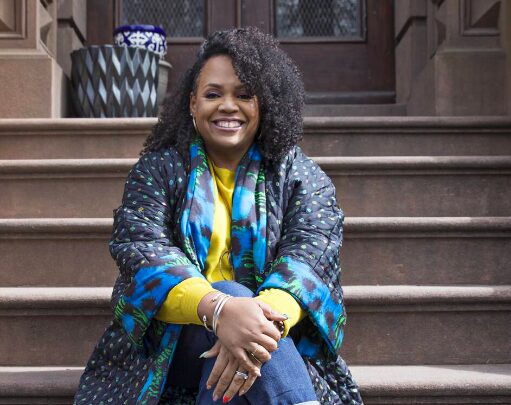Lisa Price, the visionary behind breakthrough natural Black hair care brand Carol’s Daughter, built her company from humble beginnings, crafting beauty products in her kitchen that catered specifically to the Black community. For decades, her brand was celebrated not just for its quality but also because it was Black-owned. This connection to her community was a cornerstone of the brand’s identity. However, in 2014, when Price made the decision to sell Carol’s Daughter to L’Oreal, the reaction from her fan base was far from celebratory.

“Being called a sellout was tough. There was one message that said, ‘What kind of values are you teaching your children by showing them that if there are enough zeros on the check, you can sell your soul?'” recalled Prince in an interview with Touré for The Grio on July 29.
Talking Money
Price stood to benefit from the sale of the company, which at the time the business was sold had sales revenue of $27 million for the 12 months preceding the deal. She remained in control of the company’s direction, but many of her loyal customers felt betrayed. They were dismayed that a beloved Black-owned business was now under the umbrella of a multinational corporation. Social media channels buzzed with discontent, and Price found herself grappling with the weight of their disappointment. Despite the financial security and continued success of Carol’s Daughter, the backlash marred what should have been a triumphant moment for her.
But according to Price, the intention to sell was decided early on. When the company had a cash infusion from Pegasus Capital in 2007, the plan was to look for a strategic partner for an exit “3-4 years” down the line.
“I felt we had conveyed this in the press, but it was not communicated well. People were concerned that the project would be destroyed, that it would no longer be for us, but for white people instead. But that was not the case. I told everyone, ‘I am not leaving; I am still going to be part of the brand, and the products will not change,'” she said, but still her consumers felt betrayed.
Initially, the criticism stung deeply. Price felt a sense of shame, as if she had compromised her principles or let down her community.
She spoke about this also with All the Hats editor Teneshia Carr of Inc., saying the pushback caused reflection on her part “It forced me to really look at why I was doing it, is it the right thing to do, how to do it.”
But Price was solid in her reasoning that the sale would set up Black wealth should could pass on.
“I changed the narrative…I had to educate on Black wealth,” she told Toure.
In an interview with The Cut, she explained, “When someone is in a position to sell their company and build wealth for their family, and go out and start a few ventures, I would love for people not to react with vitriol, but allow them to be celebrated for doing that. It is the only way to build wealth over time. Black banks don’t magically appear in great numbers. Investment groups, angel investors, and groups that target Black-owned businesses do exist, but it is going to take time to be equal from a wealth perspective. That might require different things being sold. And people should not be canceled because of that.”
Price emphasizes that L’Oreal was the ideal partner to help her achieve her goals for the brand. Before the acquisition, Carol’s Daughter had faced financial struggles, with bankruptcy sometimes looming. The partnership with L’Oreal provided the resources needed to ensure the brand’s growth and its availability to a broader audience. Price remained at the helm, guiding the company with the same dedication to serving her customers.
The sale also sparked a broader discussion about the challenges faced by Black entrepreneurs. Price notes that the pride in owning a business is significant, but there is also a time when it is prudent to “cash out” to secure generational wealth. Selling her company did not mean she was selling out; rather, it was a way to capture the value she had built and ensure that it would benefit her family and community for years to come.
“If I want to retire, does that mean my brand is no longer viable? Does it mean it shouldn’t be supported? There is an assumption that no one will be speaking on behalf of the consumer because a white company purchased it, when it really isn’t the case. There are a lot of us out there trying to help people understand that companies can be Black-founded, Black-owned, and Black-led — those aren’t excuses, those are realities,” Price told The Cut.

